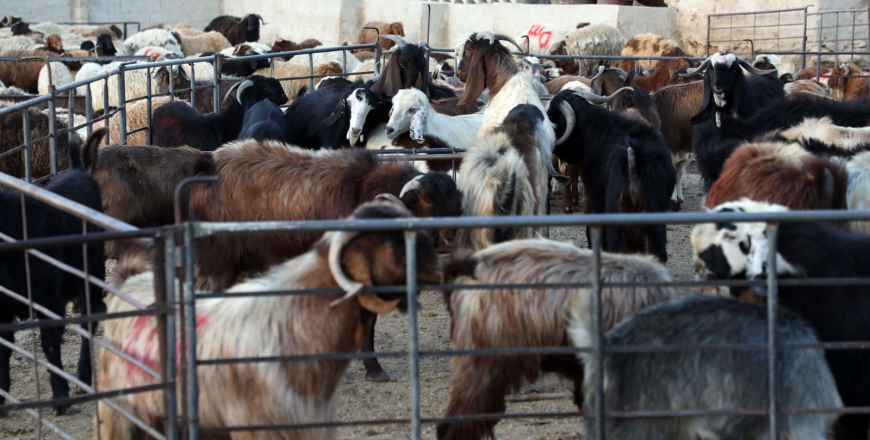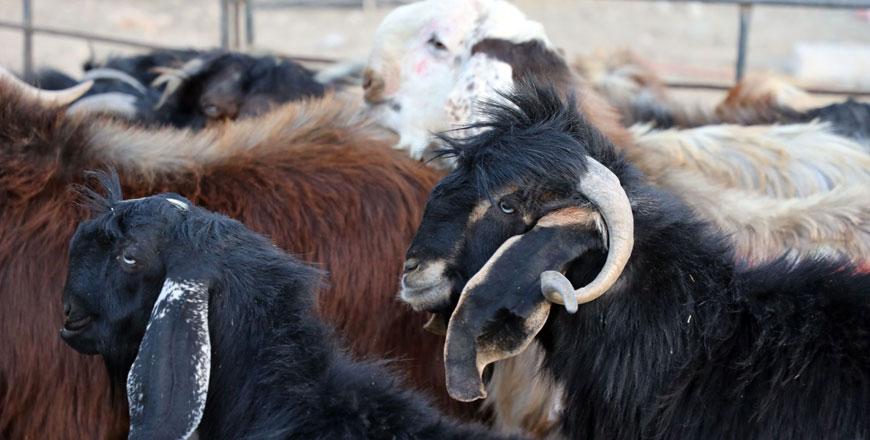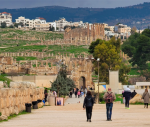You are here
Farmers see falling demand for sacrificial animals ahead of eid
By Rayya Al Muheisen - Jul 07,2022 - Last updated at Jul 07,2022

Sacrificial animals are seen at a livestock market in Amman’s Shafa Badran neighbourhood in this recent photo (Photo by Osama Aqarbeh)
AMMAN — Local livestock farmers say they are bracing for lower profits and higher costs as Eid Al Adha begins.
The holiday, which falls on the 10th day of the 12th month of the Hijri calendar, Dhul Hijja, is the feast marking the end of the annual pilgrimage to Mecca, which Muslims of sufficient means are required to perform at least once in their lifetime.
Eid Al Adha means the “feast of sacrifice” and during the holiday Muslims slaughter livestock, cattle or camels and distribute the meat to the needy.
Ibrahim Al Bdour, a livestock farmer and breeder in the Tafileh Governorate, roughly 180 kilometres south of Amman, said that all livestock breeders have to deal with soaring prices of fodder and a fuel price increase.
They are also under an additional burden due to the shrinking demand for sacrificial animals ahead of Eid.
“Our primary source of income during this season is selling our animals,” Bdour told The Jordan Times on Thursday.
Bdour added that there were not many buyers in the area because of the overall economic situation. “This is a tragedy for us,” he added.
“After months of feeding, shepherding and taking care of the livestock, we’re having a hard time selling them,” Bdour added.
In Amman, a sheep or goat sells for roughly JD120 to JD200.
Abu Omar, a butcher and slaughterhouse owner, told The Jordan Times that the price of an animal is determined by its weight, health, sex, age and the country of origin.
However, customers will have to pay more for sacrificial animals this eid due to higher transport and fodder costs, he said.
“Livestock prices are influenced by supply and demand,” Abu Omar added, noting that he sold more last eid compared with this year.
Abu Omar said that there are also increasing maintenance costs, such as water, fodder and medicine for the animals in addition to paying the salaries of workers.
“We have to pass on this cost to the customer, even though we try not to make our margins wide,” Abu Omar added.
Related Articles
AMMAN — Livestock sales witnessed a 50 per cent drop during this year’s Eid Al Adha compared with last year, which is the most favourable se
AMMAN — Livestock owners and breeders are growing concerned over potential ramifications that the ongoing conflict in Sudan may have on the
AMMAN — The Agriculture Ministry has finalised preparations for Eid Al Adha, a ministry official said on Monday, adding that a sufficient su















